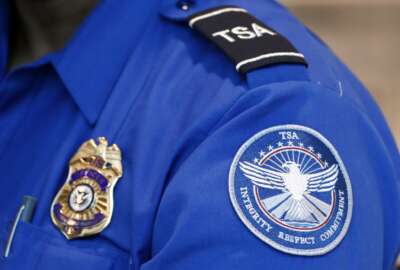Army prepares historic language training surge
Every soldier to be sent to Afghanistan will soon be required to complete language and culture training before being allowed to deploy. Federal News Radio gets ...
wfedstaff | June 3, 2015 12:15 pm
By Suzanne Kubota
Senior Internet Editor
FederalNewsRadio.com
As U.S. forces are drawing down in Iraq, President Obama has increased the U.S. commitment in Afghanistan, ordering a surge of 30,000 additional troops for the 9-year mission there.
Col. Dino Pick, Commandant of the Defense Language Institute told Federal News Radio every single one of those troops will have some basic knowledge of the language and the culture before their boots hit the ground, in military history’s largest undertaking of its kind.
“The Chief of Staff of the Army,” said Pick, “directed every deploying soldier to accomplish six to eight hours of language and culture training.”
The training, said Pick, will be internet-based. Starting October 1st it will be a requirement for each deploying soldier to accomplish that training before going to Afghanistan.
So in addition to the one small unit leader per platoon sized element that goes through our language training detachment, every deploying soldier will have at least a rudimentary set of vocabulary, basic language skills and cultural understanding before deploying to Afghanistan.
Training courses, including Dari, Pashto and Urdu, have been completed at Forts Carson, Campbell and Drum by more than 400 small unit leaders. Pick said troops from Ft. Campbell are now on the ground with their brigade and feedback on the training is starting to come in. That feedback, in turn, will be used to make adjustments as the second wave of classes get set to begin.
The training has been tailored to the wants and needs of local commanders, said Pick, while keeping instruction “as intense and connected as possible.”
Instructors are ethnic Afghans almost exclusively. So not only are they able to teach their languages as native speakers, but they’re able to pass on the all important cultural dimension that helps enable the soldiers to successfully accomplish their mission downrange. So what they get is sort of a holisitic, linguistic and cultural training approach that’s as close as we can get it given the constraints of other training requirements and commander’s intent before the units deploy.
Language, said Pick, “exists in a cultural context.” So when teaching, DLI counts on, and uses, the skills of the instructors to pass that on.
Critical Mission Enabler
The idea behind increasing language proficiency in war zones, said Pick, is required to meet the mission. There is near constant contact between soldiers and host nation populations in all sorts of different settings. “They need to be able to speak the language and they need to be able to understand the culture.” DLI students can do that better than soldiers that haven’t been trained prior to deployment.
Currently, DLI is focused on training “small unit leaders,” said Pick, because they’re the ones taking out patrols and meeting with local leaders.
With the expansion of language training and requirements will come an eventual paradigm shift, according to the chief of staff of the Army, Gen. George W. Casey Jr..
At a recent visit to a DLI facility, Casey noted “We need to make language expected rather than forced,”speaking about the need to have culturally astute Soldiers in order to accomplish objectives.
Copyright © 2024 Federal News Network. All rights reserved. This website is not intended for users located within the European Economic Area.





